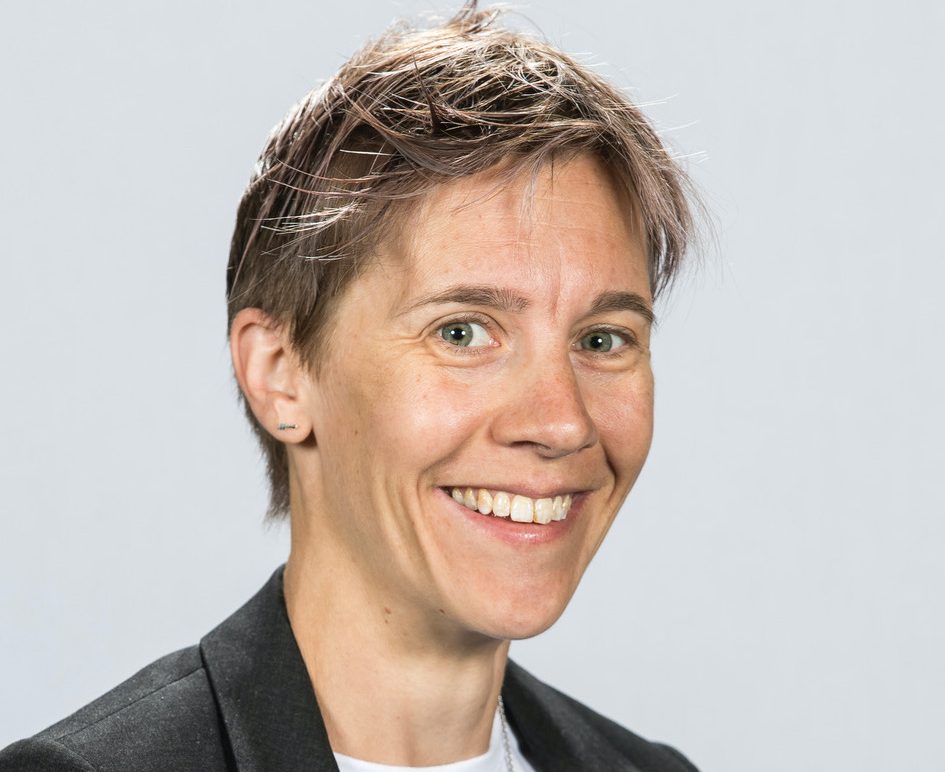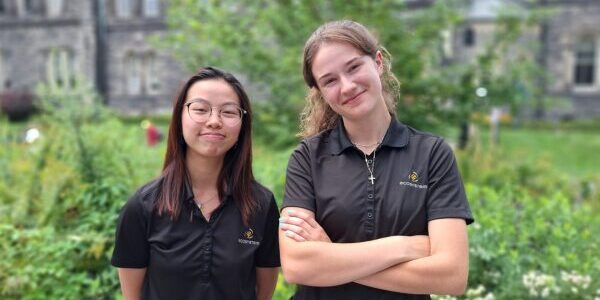Professor Sasha Gollish (CivE MEng 1T0, CivE PhD 1T9) has joined the Division of Engineering Science (EngSci) and the Institute for Studies in Transdisciplinary Engineering Education and Practice (ISTEP) as an Assistant Professor in the teaching stream.
Gollish brings a unique combination of experiences and skills to the task of teaching some of EngSci’s core engineering design courses. In addition to being a licensed professional engineer with experience in transportation and sustainability, and holding a PhD in engineering education, she is also an elite athlete who applies the lessons of competing on the international stage to the classroom.
Writer Christina Heidorn spoke to Gollish about how her academic, professional and athletic careers to date all inform her approach to teaching.
Can you tell us a little about your career path?
My story is not your traditional one. When the Pan Am Games were coming to Toronto in 2015, I took a leap of faith. I left a job I absolutely loved in professional engineering to return to professional running after a decade of working in the public and private sectors, primarily in road safety and vulnerable user groups. I trusted my gut and the dedication I’d put into training to compete at the highest level again.
I started my PhD as a side project when I returned to professional running; I continue to pursue professional running and engineering alongside my teaching. I was inspired by wrestler Erica Wiebe, who won the gold medal at the 2016 Olympics after having missed out on the 2015 Toronto Pan Am Games. Wiebe described how her studies saved her when wrestling fell apart, how she demanded excellence in a variety of facets of life that helped her be a whole person, not just a wrestler, which in turn made her the greatest wrestler.
Tell me about your PhD research?
I completed my PhD studies in 2019 and my research focused on the connection of mathematics to engineering. I explored how coaching principles, similar to those used in high performance athletics, can be applied in engineering classrooms to spur motivation, perseverance and engagement. I also looked at which themes in mathematics — broadly speaking, statistics, or more specifically, ordinary and partial differential equations — are most important in the curriculum. It’s been really cool to watch the suggestions of my PhD come to life in U of T Engineering’s Core 8 curriculum.
My current area of research is evolving. I’m interested in data and machine learning as it relates to sports performance. I’ve applied a host of engineering principles to my training and that definitely makes me a better athlete and competitor, and I’d like to share and grow my knowledge in this area.
What will you be teaching?
As part of EngSci’s Praxis III teaching team I will focus on engineering design and transdisciplinary competencies. My teaching philosophy centres around empathy and using it in all contexts of engineering and life in general. I’ll also continue to work with the Engineering Communication Program (ECP) and to liaise with the Department of Mechanical & Industrial Engineering (MIE) and the Engineering Career Centre (ECC).
What are you most looking forward to in your new position?
Working with an incredible group of talented and hard-working people. From the Praxis III team to the students, I feel fortunate to work with some of the best of the best.
Speaking to the Praxis I EngSci students about resilience in 2019, after I returned from not finishing the Marathon at the Doha World Championships, was one of the most memorable experiences of my career so far. I learned a lot about myself on the journey to put together that lecture. First, working on the technical details to understand the mathematical models for resilience in earthquake engineering. Next, working through the details of my failed marathon. And then combining the theory of resilience with the what I learned about myself in that marathon to find the positive lessons to carry forth in running, teaching and life in general.
As a new professor, what’s one piece of advice you would give to new students?
Be thoughtful with the time you dedicate to assessments. If something is worth 5% do not treat it the same as a 20% assignment. Too often I see undergraduate students fretting over 1 and 2% assignments. What’s that saying — “Don’t sweat the small stuff?”
Finally, is there anything fun about yourself that you’d like to share?
I’m a registered professional coach with the Coaching Association of Canada. Alongside my professional engineering and teaching career I continue to pursue middle and long distance running at the elite level. I won a bronze medal in the 1,500-metre race at the Pan Am Games in Toronto. Since then, I’ve represented Team Canada at world championships, including the 2016 Pan Am Cross-Country Championships in Venezuela and the 2019 World Athletics Championships in Qatar. In 2018 I was Canada’s national half-marathon champion and placed in the top 30 at the World Half Marathon Championships in Spain. It’s been an honour to don the maple leaf and compete with the best in the world. And because I believe in sharing big goals, my 2022 goal is to break the Masters world record in the women’s 40–45 1,500m, which stands at 3:59.73!




